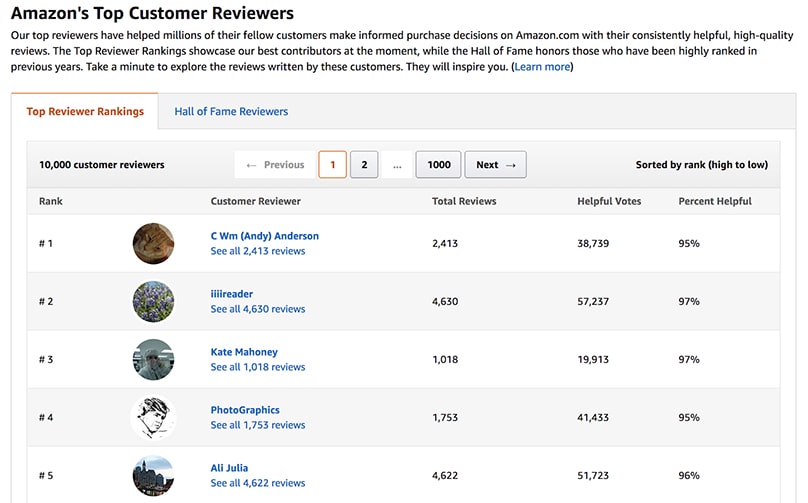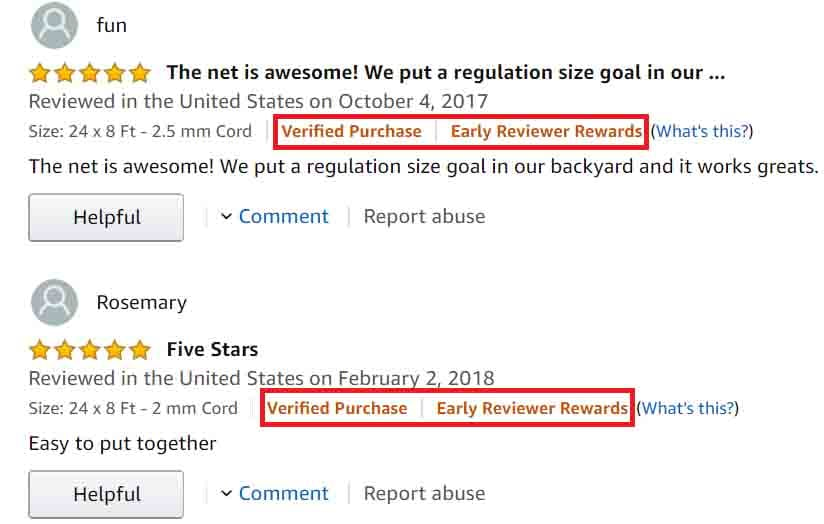What is a Product Reviewer Program and How Does it Work?
A product reviewer program is a platform that connects individuals with products from various manufacturers, allowing them to test and review these products in exchange for compensation or incentives. These programs have become increasingly popular in recent years, with many individuals seeking to monetize their opinions and experiences with products. But is the reviewer program legit? To answer this question, it’s essential to understand how these programs operate and the benefits they offer to both reviewers and product manufacturers.
Product reviewer programs typically work by partnering with manufacturers to offer their products to a community of reviewers. These reviewers are usually selected based on their demographics, interests, or expertise, and are provided with free products or services in exchange for their honest reviews. The reviews are then published on the program’s website, social media, or other online platforms, providing valuable feedback to the manufacturers and helping them improve their products.
Popular product reviewer programs like Amazon Vine or Home Tester Club have been successful in connecting reviewers with products from various manufacturers. These programs have also helped manufacturers gather valuable feedback from their target audience, which can be used to improve product development and marketing strategies. However, with the rise of product reviewer programs, there have been concerns about their legitimacy and the potential for fake or biased reviews.
To address these concerns, it’s essential to research the program thoroughly and understand its terms and conditions, compensation structure, and review process. A legitimate product reviewer program should be transparent about its operations, provide clear guidelines for reviewers, and ensure that reviews are honest and unbiased. By doing so, these programs can maintain their integrity and provide value to both reviewers and manufacturers.
Separating Fact from Fiction: Red Flags to Watch Out for in Reviewer Programs
When researching product reviewer programs, it’s essential to separate fact from fiction to avoid falling prey to scams or illegitimate programs. But is the reviewer program legit? To answer this question, it’s crucial to watch out for red flags that may indicate a program is not legitimate. These red flags include unrealistic income promises, lack of transparency, or poor customer support.
Unrealistic income promises are a significant red flag. If a program promises unusually high earnings or guaranteed income, it’s likely a scam. Legitimate reviewer programs usually provide clear and realistic compensation structures, and they never guarantee a certain income. For example, some reviewer programs may promise $100 per review, but this is often unrealistic and may be a sign of a scam.
Lack of transparency is another red flag. Legitimate reviewer programs are usually transparent about their operations, including how they select reviewers, how reviews are published, and how compensation is structured. If a program is unclear or secretive about its operations, it may be a sign of a scam. For instance, some programs may not disclose their compensation structure or may have unclear guidelines for reviewers.
Poor customer support is also a red flag. Legitimate reviewer programs usually have responsive and helpful customer support teams. If a program has poor customer support or unresponsive administrators, it may be a sign of a scam. For example, some programs may not respond to reviewer inquiries or may have unhelpful support teams.
Examples of reviewer programs that have been known to exhibit these characteristics include programs that promise unusually high earnings or have unclear compensation structures. These programs may be scams or illegitimate, and it’s essential to avoid them. By watching out for these red flags, potential reviewers can protect themselves from scams and illegitimate programs.
It’s also essential to research the program thoroughly and read reviews from other reviewers. This can provide valuable insights into the program’s legitimacy and help potential reviewers make informed decisions. By doing their due diligence, potential reviewers can avoid scams and illegitimate programs and find legitimate reviewer programs that offer real opportunities for earning income and testing products.
How to Spot a Legitimate Reviewer Program: Key Characteristics to Look For
When searching for a product reviewer program, it’s essential to know what to look for to ensure that the program is legitimate and offers real opportunities for earning income and testing products. But is the reviewer program legit? To answer this question, it’s crucial to identify the key characteristics of a legitimate reviewer program.
A clear and transparent compensation structure is one of the most critical characteristics of a legitimate reviewer program. Legitimate programs usually provide clear and concise information about how reviewers are compensated, including the amount of money they can earn per review, the payment terms, and any other relevant details. For example, UserTesting, a reputable reviewer program, clearly outlines its compensation structure on its website, including the amount of money reviewers can earn per test and the payment terms.
A user-friendly platform is another essential characteristic of a legitimate reviewer program. Legitimate programs usually have intuitive and easy-to-use platforms that make it simple for reviewers to find and apply for testing opportunities, submit reviews, and track their earnings. TryMyUI, a well-known reviewer program, has a user-friendly platform that allows reviewers to easily find and apply for testing opportunities, submit reviews, and track their earnings.
A responsive customer support team is also a critical characteristic of a legitimate reviewer program. Legitimate programs usually have responsive and helpful customer support teams that can assist reviewers with any questions or concerns they may have. For example, UserTesting has a responsive customer support team that can assist reviewers with any questions or concerns they may have, including technical issues or payment inquiries.
Other key characteristics of a legitimate reviewer program include a clear and concise review process, a transparent testing process, and a secure payment system. Legitimate programs usually have clear and concise review processes that outline the steps reviewers need to take to complete a review, including the testing process, the review submission process, and the payment process.
By looking for these key characteristics, potential reviewers can increase their chances of finding a legitimate reviewer program that offers real opportunities for earning income and testing products. It’s essential to do thorough research and due diligence before joining any program to ensure that it is legitimate and offers real opportunities for success.
The Benefits of Joining a Legitimate Reviewer Program: Real-Life Examples
Joining a legitimate product reviewer program can have numerous benefits for individuals, including increased income, improved product knowledge, and enhanced online reputation. But is the reviewer program legit? To answer this question, it’s essential to look at real-life examples of individuals who have benefited from joining legitimate reviewer programs.
One example of a successful product reviewer is Sarah Jones, a stay-at-home mom who joined UserTesting, a reputable reviewer program, to earn extra income. Sarah has been a member of UserTesting for over two years and has earned over $10,000 by testing and reviewing products. She has also improved her product knowledge and has become an expert in her niche, which has helped her to build a strong online reputation.
Another example is John Smith, a tech enthusiast who joined TryMyUI, a well-known reviewer program, to test and review new gadgets and technology products. John has been a member of TryMyUI for over three years and has earned over $5,000 by testing and reviewing products. He has also improved his technical expertise and has become a respected reviewer in his niche, which has helped him to build a strong online reputation.
These examples demonstrate the benefits of joining a legitimate product reviewer program, including increased income, improved product knowledge, and enhanced online reputation. By joining a legitimate program, individuals can earn extra income, improve their product knowledge, and build a strong online reputation, which can lead to new opportunities and career advancement.
Legitimate product reviewer programs also provide individuals with the opportunity to test and review new products, which can be a fun and rewarding experience. Many programs also offer incentives and rewards for reviewers who provide high-quality reviews and participate in the community, which can motivate individuals to continue testing and reviewing products.
Overall, joining a legitimate product reviewer program can be a great way for individuals to earn extra income, improve their product knowledge, and build a strong online reputation. By doing thorough research and due diligence, individuals can find a legitimate program that meets their needs and provides them with the opportunities they are looking for.
How to Make the Most of a Reviewer Program: Tips and Strategies for Success
To maximize earnings and success in a reviewer program, it’s essential to understand the tips and strategies that can help reviewers stand out from the crowd. But is the reviewer program legit? To answer this question, it’s crucial to focus on providing high-quality reviews, engaging with the community, and optimizing profiles.
Writing high-quality reviews is critical to success in a reviewer program. Reviewers should focus on providing detailed, honest, and informative reviews that help others make informed purchasing decisions. This can include providing specific examples, comparing products to similar ones, and highlighting both the pros and cons of a product.
Engaging with the community is also essential to success in a reviewer program. Reviewers should participate in online forums, respond to comments and questions from other reviewers, and share their reviews on social media. This can help build a reputation as a trusted and knowledgeable reviewer, which can lead to more opportunities and higher earnings.
Optimizing profiles is also crucial to success in a reviewer program. Reviewers should ensure that their profiles are complete, up-to-date, and professional, including a profile picture, bio, and contact information. This can help reviewers stand out from the crowd and increase their visibility to potential clients.
Additionally, reviewers should focus on building a niche expertise, which can help them stand out from the crowd and increase their earnings. This can include specializing in a particular type of product, such as electronics or beauty products, and building a reputation as a trusted and knowledgeable reviewer in that niche.
By following these tips and strategies, reviewers can maximize their earnings and success in a reviewer program. It’s essential to remember that success in a reviewer program takes time, effort, and dedication, but with the right approach, reviewers can build a successful and lucrative career.
Legitimate reviewer programs also provide reviewers with the opportunity to earn badges and rewards, which can help increase their visibility and credibility. These badges and rewards can be displayed on profiles and can help reviewers stand out from the crowd.
Overall, making the most of a reviewer program requires a combination of providing high-quality reviews, engaging with the community, and optimizing profiles. By following these tips and strategies, reviewers can maximize their earnings and success in a reviewer program and build a successful and lucrative career.
Common Misconceptions About Reviewer Programs: Setting the Record Straight
There are several common misconceptions about reviewer programs that can make it difficult for potential reviewers to determine whether a program is legitimate or not. But is the reviewer program legit? To answer this question, it’s essential to address these misconceptions and provide evidence to debunk them.
One common misconception is that reviewer programs are scams. However, this is not true. Legitimate reviewer programs are designed to provide a platform for reviewers to share their honest opinions about products, and they offer a range of benefits, including free products, cash incentives, and the opportunity to build a reputation as a trusted reviewer.
Another misconception is that reviewer programs require extensive technical expertise. However, this is not necessarily true. While some reviewer programs may require technical knowledge, many others do not. For example, UserTesting, a reputable reviewer program, requires reviewers to have a computer, internet connection, and a microphone, but it does not require technical expertise.
Some people also believe that reviewer programs are only for professional reviewers. However, this is not true. Many reviewer programs are open to anyone who is interested in sharing their opinions about products, regardless of their level of experience or expertise. For example, TryMyUI, a well-known reviewer program, allows anyone to sign up and start reviewing products.
Additionally, some people believe that reviewer programs are not legitimate because they offer free products or cash incentives. However, this is not true. Legitimate reviewer programs offer these incentives as a way to thank reviewers for their time and effort, and they are a common practice in the industry.
By addressing these common misconceptions, potential reviewers can gain a better understanding of what reviewer programs are and how they work. It’s essential to remember that not all reviewer programs are created equal, and it’s crucial to do thorough research and due diligence before joining any program.
Legitimate reviewer programs are transparent about their operations, including how they select reviewers, how reviews are published, and how compensation is structured. They also provide clear guidelines for reviewers and offer support and resources to help them succeed.
Overall, reviewer programs can be a great way for individuals to earn extra income, build their reputation as a trusted reviewer, and share their opinions about products. By understanding the common misconceptions about reviewer programs, potential reviewers can make informed decisions and find a legitimate program that meets their needs.
What to Expect from a Legitimate Reviewer Program: A Behind-the-Scenes Look
When joining a legitimate reviewer program, it’s essential to understand what to expect from the experience. But is the reviewer program legit? To answer this question, it’s crucial to take a behind-the-scenes look at what it’s like to participate in a legitimate reviewer program.
One of the first things reviewers can expect is to receive a variety of products to test and review. These products can range from electronics and gadgets to beauty products and household items. Reviewers will typically receive a notification from the program administrators with information about the product, including its features, benefits, and any specific testing requirements.
Once reviewers receive the product, they will be expected to test it thoroughly and provide a detailed review. This review should include information about the product’s features, performance, and overall value. Reviewers should also provide feedback on the product’s packaging, instructions, and any other relevant details.
After completing the review, reviewers will typically submit it to the program administrators for approval. The administrators will review the submission to ensure it meets the program’s guidelines and standards. Once approved, the review will be published on the program’s website or other online platforms.
Reviewers can also expect to communicate with the program administrators throughout the review process. This communication can include answering questions about the product, providing feedback on the review process, and resolving any issues that may arise.
Legitimate reviewer programs also provide reviewers with the opportunity to earn badges and rewards for their participation. These badges and rewards can be displayed on profiles and can help reviewers stand out from the crowd.
Overall, participating in a legitimate reviewer program can be a fun and rewarding experience. Reviewers can expect to receive a variety of products to test and review, communicate with program administrators, and earn badges and rewards for their participation.
By understanding what to expect from a legitimate reviewer program, reviewers can make informed decisions and find a program that meets their needs. It’s essential to remember that not all reviewer programs are created equal, and it’s crucial to do thorough research and due diligence before joining any program.
Legitimate reviewer programs are transparent about their operations, including how they select reviewers, how reviews are published, and how compensation is structured. They also provide clear guidelines for reviewers and offer support and resources to help them succeed.
Conclusion: Is the Reviewer Program Legit? The Verdict
In conclusion, the legitimacy of a reviewer program depends on various factors, including its compensation structure, platform, customer support, and transparency. But is the reviewer program legit? To answer this question, it’s essential to do thorough research and due diligence before joining any program.
Legitimate reviewer programs offer a range of benefits to both reviewers and product manufacturers, including increased income, improved product knowledge, and enhanced online reputation. They also provide a platform for reviewers to share their honest opinions about products, which can help manufacturers improve their products and services.
However, not all reviewer programs are created equal, and some may exhibit red flags that indicate they are not legitimate. These red flags include unrealistic income promises, lack of transparency, and poor customer support.
To avoid falling prey to scams or illegitimate programs, it’s essential to research the program thoroughly and read reviews from other reviewers. This can provide valuable insights into the program’s legitimacy and help potential reviewers make informed decisions.
By understanding the key characteristics of a legitimate reviewer program, including a clear and transparent compensation structure, a user-friendly platform, and a responsive customer support team, reviewers can increase their chances of success and avoid scams.
In summary, the legitimacy of a reviewer program depends on various factors, and it’s essential to do thorough research and due diligence before joining any program. By understanding the key characteristics of a legitimate reviewer program and avoiding red flags, reviewers can make informed decisions and find a program that meets their needs.
Ultimately, the decision to join a reviewer program should be based on careful consideration and research. By taking the time to understand the program’s legitimacy and potential benefits, reviewers can make informed decisions and avoid scams.




